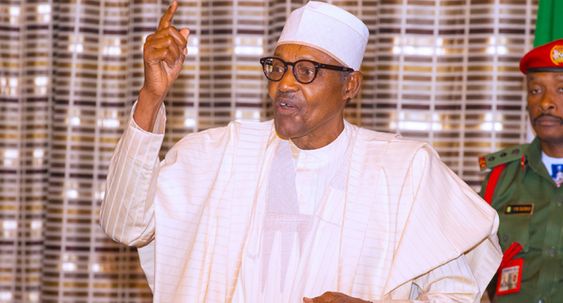Headlines
Buhari rejects the NASS’s proposal to call the president and other officials

The Constitution Amendment Bill on the ability to summon the President and state governors has been rejected by President Muhammadu Buhari.
Tuesday’s plenary session had a hint from Senate President Dr. Ahmad Lawan, who bemoaned the President’s failure to sign the constitution-altering law and 18 other bills.
On Friday of last week, President Buhari signed 16 of the 35 constitution-altering legislation that the National Assembly had brought to him for approval.
Informing the Senate in session of the president’s action, Lawan stated that just 16 of the 35 proposed amendments to the Constitution addressed to the president in January had received his consent.
The Senate President stated that the Fifth Modification Bill Number 6, which provides for the financial independence of State Houses of Assembly and Judiciary, was the most notable of the 16 laws that received assent.
Lawan enumerated more items, transferring some from the exclusive list to the concurrent list, some of which focused on power devolutions in the areas of relocating railway services, jails, and electricity generation and distribution.
But he assured that both chambers of the National Assembly will continue to work hard to pass the 19 laws that the President did not ratify.
The Fifth Alteration Bill Number 24, which sought to amend the Second Schedule to the Constitution of the Federal Republic of Nigeria, 1999, to enable the National Assembly and State Houses of Assembly to summon the President of the Federal Republic of Nigeria and Governors of States to answer questions on matters that the National and State Houses of Assembly have the authority to decide, was the first of these 19 bills that the President did not ratify.
The President also rejected Fifth Alteration Bill Number 7, which attempted to amend the Federal Republic of Nigeria’s 1999 Constitution’s provisions to require people to follow or comply with legislative summonses.
Other crucial ones include:
Fifth Amendment Bill Number 29 proposed to amend the Federal Republic of Nigeria’s 1999 Constitution’s provisions to allow for the President and Governor to deliver State of the Nation and State of the State Addresses.
Fifth Alteration Bill Number 22 aimed to specify the time frame in which the President or the Governor of State must send the appropriation bill to the National Assembly or House of Assembly by amending the provisions of the Federal Republic of Nigeria’s 1999 Constitution.
READ ALSO: EFCC detains and parades 19 people in Kwara for buying votes
Fifth Amendment Bill Number 30, which intended to “include Former Presidents of the National Assembly in the Council of State,” sought to amend the provisions of the Federal Republic of Nigeria’s 1999 constitution.
Fifth Amendment Bill No. 14 aimed to amend the Federal Republic of Nigeria’s 1999 Constitution by adding a provision requiring the transfer of fingerprints, identification, and criminal records from the Exclusive Legislative List to the Concurrent Legislative List.
Fifth Alteration Bill Number 18, which sought to “streamline the process for reviewing the revenue allocation formula” and “empower the Revenue Mobilization Allocation and Fiscal Commission to Enforce Compliance with Remittance of Accruals into and Disbursement of Revenue from the Federation Account,” was introduced.
Fifth Amendment Bill Number 66, which aimed to amend the Federal Republic of Nigeria’s 1999 Constitution’s provisions to reflect the creation and primary duties of the Nigerian Security and Civil Defense Corps, etc.
